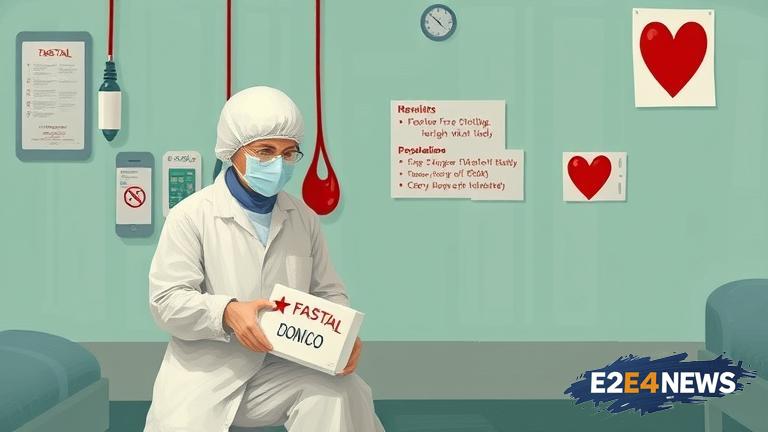The US healthcare system is currently grappling with a critical shortage of blood supplies, with local and state hospitals sounding the alarm and urging citizens to donate blood. This severe shortage has been exacerbated by a combination of factors, including a decline in donations during the pandemic, an increase in demand due to elective surgeries, and a lack of eligible donors. As a result, hospitals are struggling to maintain adequate blood reserves, putting patients’ lives at risk. The situation is particularly dire for patients requiring emergency surgeries, cancer treatments, and other critical care services. In response to this crisis, hospitals and blood banks are launching urgent appeals for donations, emphasizing the importance of blood donations in saving lives. Donors are being encouraged to come forward and give blood, with many hospitals offering convenient donation centers and mobile blood drives. The American Red Cross has also joined the effort, stressing the need for regular donations to ensure a stable blood supply. According to medical experts, one donation can save up to three lives, highlighting the significant impact that individual donors can have. Furthermore, blood donations are essential for treating a range of medical conditions, including anemia, sickle cell disease, and bleeding disorders. The current shortage has also sparked concerns about the potential for delayed or canceled surgeries, which could have serious consequences for patients’ health and well-being. In addition, the shortage has significant economic implications, with estimates suggesting that the US healthcare system could incur substantial costs due to the lack of blood supplies. To address this crisis, hospitals and healthcare organizations are exploring innovative solutions, such as blood recycling and artificial blood substitutes. However, these alternatives are still in the experimental stages, and donations remain the primary source of blood supplies. In the meantime, hospitals are urging donors to take action, emphasizing that every donation counts and can make a significant difference in patients’ lives. Donors can visit local blood banks or hospitals to give blood, with many centers offering flexible scheduling and convenient donation processes. The US government has also launched initiatives to promote blood donations, recognizing the critical role that donations play in maintaining public health. As the situation continues to unfold, hospitals and healthcare organizations are working tirelessly to raise awareness about the importance of blood donations and to encourage citizens to take action. By donating blood, individuals can help alleviate the current shortage and ensure that patients receive the medical care they need. The US healthcare system relies heavily on the generosity of blood donors, and every donation brings hope to patients and families affected by the shortage. In conclusion, the critical blood shortage facing US hospitals is a pressing concern that requires immediate attention and action. By donating blood, individuals can help address this crisis and make a meaningful difference in the lives of patients and families across the country.





